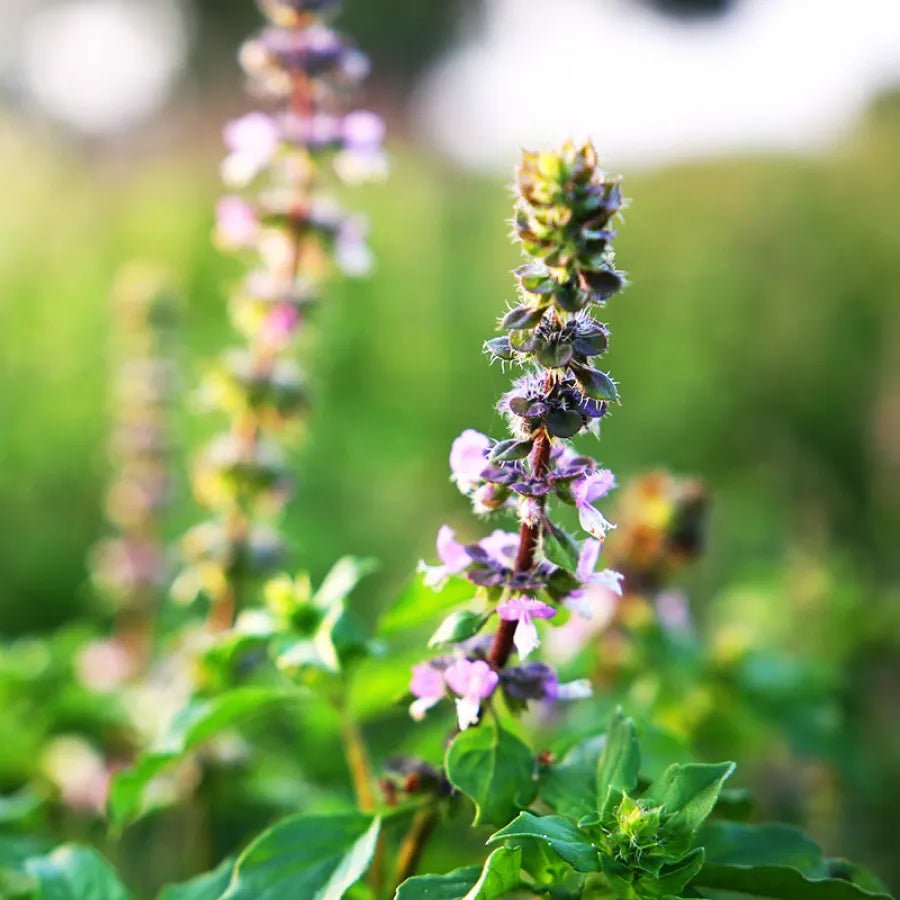Unlocking the Mysteries of Holy Basil: A Journey into Wellness
Holy Basil, or Tulsi as it is lovingly called in its native India, is not just a herb; it’s a treasure trove of health and wellness. Revered in Ayurveda for centuries, this miraculous herb is now catching the attention of the modern world. Why, you ask? Let’s dive into the heart of nature’s own medicine and unveil the myriad Holy Basil benefits that can transform your health.
From Ancient Wisdom to Modern Science: The Multifaceted Tulsi Herb
Tulsi is no ordinary herb. It’s a symbol of sanctity and a powerhouse of health benefits. In Ayurveda, Tulsi has been a cornerstone for treatments, but what does modern science say? A plethora of Holy Basil studies corroborate its traditional uses, revealing its role in enhancing immunity, combating stress, and promoting overall well-being.
The Stress-Buster You Didn’t Know You Needed
In a world where stress is the norm, Holy Basil emerges as a natural savior. Studies have shown that Tulsi possesses adaptogenic properties, meaning it helps the body adapt to stress and promotes mental balance. A 2017 study published in the Journal of Ayurveda and Integrative Medicine highlighted that Holy Basil could significantly reduce stress, anxiety, and depression. Imagine starting your day with a cup of Tulsi tea, easing your mind and uplifting your spirits.
A Shield Against Infections and Diseases
Tulsi isn’t just about calming the mind; it’s a robust immune booster. Research suggests that compounds in Holy Basil can enhance the body’s natural defense mechanism. A 2011 study in the Journal of Ethnopharmacology explored how Tulsi’s immunomodulatory effects could help in fighting infections, making it a must-have in your wellness arsenal.
The Herbal Heart-Healer
The benefits of Tulsi extend to heart health as well. Its antioxidant properties can help in lowering blood pressure and cholesterol levels, thus reducing the risk of heart diseases. A 2012 study in the Journal of Natural Remedies found that Tulsi could play a significant role in preventing heart ailments, showcasing its potential as a heart-friendly herb.

Embracing Tulsi in Everyday Life: Beyond Health Benefits
Incorporating Tulsi into your daily life is simple yet transformative. From brewing a soothing cup of Tulsi tea to using it in culinary creations, the uses of this versatile herb are endless. Not only does it offer health benefits, but it also brings a touch of nature’s serenity into your hectic life.
Holy Basil: The Herb of the Future
As we venture further into an era where natural health solutions are more sought after, Holy Basil stands out as a beacon of hope and healing. Its wide array of benefits backed by both traditional knowledge and modern studies makes it an invaluable addition to your wellness journey.
So, the next time you feel overwhelmed by the stresses of life or seek a natural way to boost your health, remember the humble Tulsi. Embrace this miraculous herb and let the secrets of Holy Basil unfold a healthier, happier you.
Holy Basil (Tulsi) Tea Recipe
Ingredients:
- Fresh Tulsi leaves: A handful (about 10-15 leaves). If fresh leaves aren’t available, you can use dried Tulsi leaves.
- Water: 2 cups
- Honey or lemon juice (optional): to taste
- Ginger (optional): a small piece, grated or sliced
Instructions:
- Prepare the Leaves: If you’re using fresh Tulsi leaves, gently wash them under running water. If you’re using dried leaves, measure out about 1-2 teaspoons.
- Boil Water: In a pot, bring the 2 cups of water to a boil.
- Add Tulsi Leaves: Once the water is boiling, add the Tulsi leaves. If you’re adding ginger, put it in at this stage.
- Simmer: Reduce the heat and let the mixture simmer for about 5-6 minutes. The longer you simmer, the stronger the tea will be. The water will gradually take on a deep golden color.
- Strain the Tea: Turn off the heat. Use a strainer to pour the tea into your favorite cup, leaving the leaves behind.
- Add Flavor (Optional): If you like, add a bit of honey or a squeeze of lemon juice for extra flavor and health benefits. Honey can soothe the throat and add a touch of sweetness, while lemon juice adds a refreshing zest and Vitamin C.
- Enjoy: Sip your Tulsi tea slowly and enjoy the relaxing and medicinal qualities of this wonderful herb.
Tips:
- For a stronger tea, you can crush the leaves before adding them to the water.
- Adjust the quantity of Tulsi leaves based on your preference for strength.
- This tea is best enjoyed fresh, so try to make it just before you plan to drink it.
- If you’re using Tulsi tea for health purposes, consider having it once or twice a day.
This Tulsi tea recipe is not only a delight to the senses but also a boon for your health, embodying the essence of natural wellness in every sip. Enjoy!